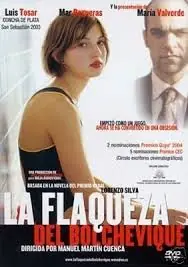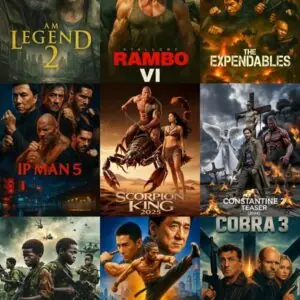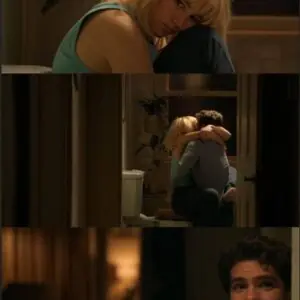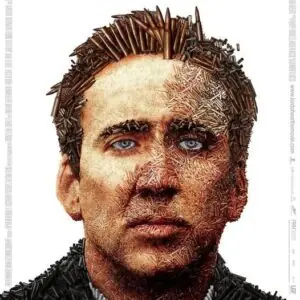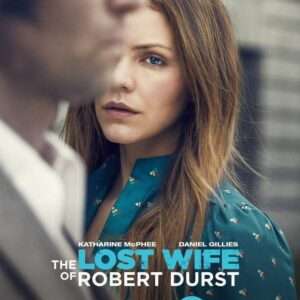Rescue Dawn is not your typical war movie. It’s not about glory, strategy, or patriotic fanfare. Instead, it’s a harrowing, deeply human story of survival—a raw and restrained dramatization of a real man’s fight to stay alive, both physically and mentally, in the darkest corners of war.
Directed by legendary filmmaker Werner Herzog and based on his own 1997 documentary Little Dieter Needs to Fly, Rescue Dawn is the true story of U.S. Navy pilot Dieter Dengler, who was shot down over Laos during a covert mission in the early days of the Vietnam War. Stripped of resources, comfort, and freedom, Dengler endures imprisonment, starvation, madness, and the unforgiving jungle itself, yet never lets go of his will to live.
The Story: From the Sky to the Earth’s Harshest Reality
The film opens with a tone of optimism. Dieter Dengler (Christian Bale), a German-born American pilot, is introduced as confident, almost naïve, believing in both the mission and the machine that propels him. After crash-landing in the dense Laotian wilderness, he is swiftly captured by local villagers and handed over to a makeshift prison camp, run by guards as unstable and desperate as the men they watch over.
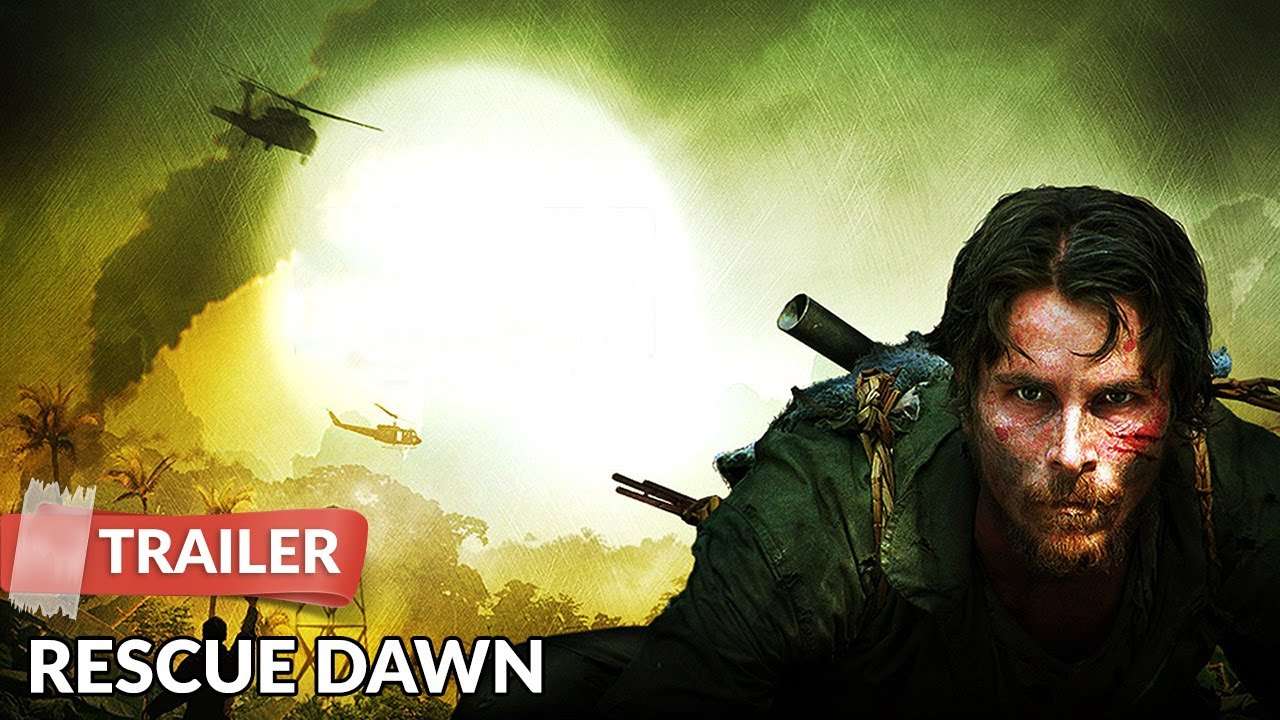
Inside the camp, Dengler meets a group of other prisoners, including Duane (Steve Zahn) and Gene (Jeremy Davies), fellow Americans whose psyches are fraying under the pressure of starvation and hopelessness. What follows is a quiet psychological unraveling mixed with moments of shocking brutality and sparse, desperate planning for escape.
Herzog, ever the observer of the wild and the willful, treats the jungle like a character. It is not just the backdrop—it is the testing ground, the spiritual antagonist, and the final hurdle between Dengler and freedom.
Christian Bale: Transformative and Transcendent
Christian Bale’s performance is nothing short of transformative. Known for his intense physical and emotional commitment to roles, Bale throws himself into Dengler’s descent with stunning authenticity. He lost significant weight for the part, capturing the gaunt look of a man slowly starving, and even did many of his own stunts in brutal, real-world conditions.
But what’s more impressive than the physical transformation is the emotional nuance. Bale portrays Dengler as a man with relentless optimism—almost absurdly so in the face of torture, illness, and isolation. This optimism is not delusion; it’s survival. In a lesser film, it might feel unrealistic, but under Herzog’s careful direction and Bale’s layered performance, it becomes one of the film’s most compelling truths: that hope, absurd as it may seem, is sometimes the only form of resistance.
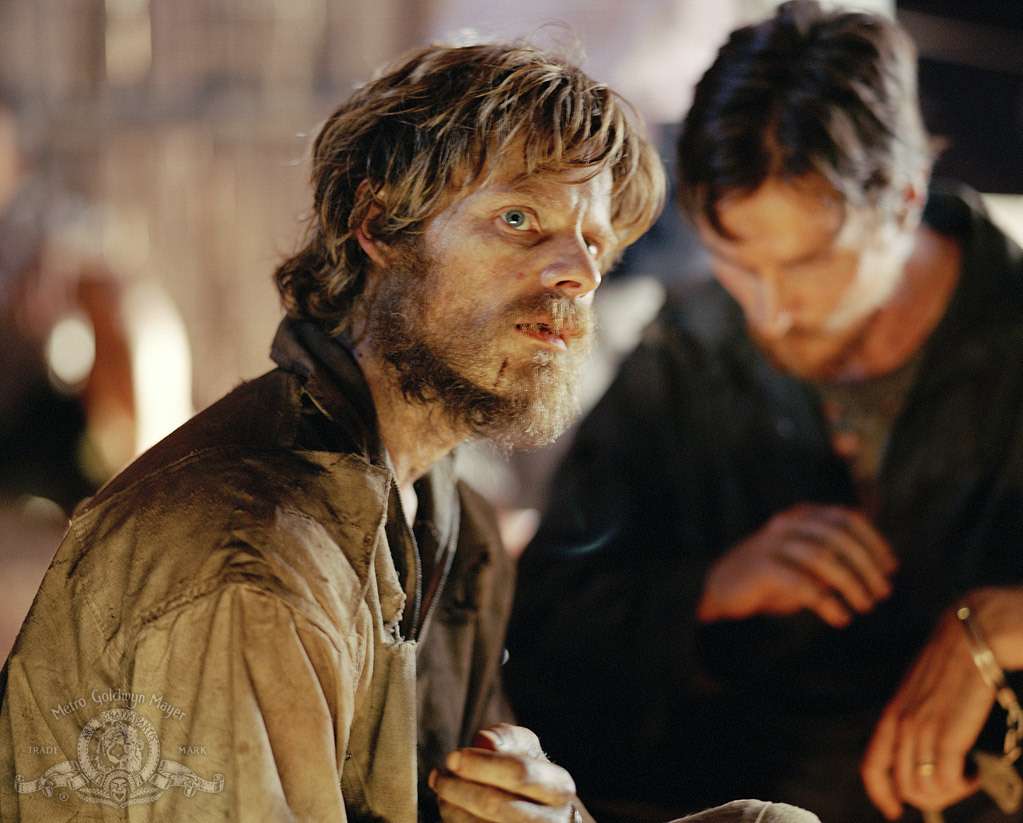
Steve Zahn and Jeremy Davies: Fragile Humanity
Steve Zahn, best known for his comedic roles, is a revelation as Duane. His performance is understated, sad, and deeply moving. Duane is not just a sidekick—he’s a man shattered by prolonged captivity, clinging to fragments of sanity. His quiet scenes with Bale provide the emotional core of the film, a subtle exploration of brotherhood in suffering.
Jeremy Davies, playing the paranoid and twitchy Gene, delivers a character who contrasts sharply with Dengler’s clear-headed optimism. Gene believes in conspiracies and doom, yet even his fear and withdrawal feel painfully real. Together, the trio represents three different ways the human mind copes with extreme trauma: hope, submission, and madness.
Werner Herzog’s Vision: Nature as Trial and Teacher
Herzog has long been fascinated by man’s struggle against nature—his desire to conquer it, his failure to understand it, and the lessons it delivers through pain. In Rescue Dawn, this theme is at the forefront. The jungle is beautiful but merciless. There is no heroism in nature, only survival.
The cinematography reflects this. Landscapes are lush yet claustrophobic. Danger is everywhere—leeches, snakes, the thick air of the forest, and even hunger itself. The escape from the prison camp is not a moment of triumphant liberation but a gateway to an even greater ordeal.
Herzog’s realism borders on the poetic. He doesn’t linger on violence for spectacle but doesn’t flinch from it either. Scenes of torture, illness, and desperation are presented with a matter-of-fact harshness that lets the viewer absorb the weight of suffering without ever feeling manipulated.
Sound and Score: Sparse but Powerful
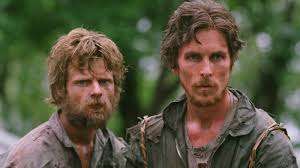
The film’s sound design is minimal, allowing the natural noise of the jungle to take over—buzzing insects, rustling leaves, distant thunder. The score, when it appears, is restrained, reinforcing emotion without overwhelming it. This quiet approach enhances the immersive quality of the film; we feel like we are with Dengler in every moment of his journey, especially the long, silent stretches of survival.
Themes: Freedom, Delusion, and the Cost of War
While Rescue Dawn is a war film, it has little to say about geopolitics. There are no sweeping statements about ideology or military policy. Instead, it is a film about what freedom means when stripped to its most basic form: the ability to move, eat, breathe, and choose.
It’s also a meditation on delusion and faith. Dengler’s belief in rescue, even when it seems irrational, keeps him alive. Others who have given up, or whose beliefs have turned inward and conspiratorial, slowly fall apart. The film does not condemn or praise these reactions—it simply shows them as inevitable outcomes of extreme duress.
Criticisms: Slow Pace, Sparse Dialogue
For some viewers, especially those expecting a traditional war thriller, Rescue Dawn may feel slow. Much of the film is observational. Dialogue is sparse, and the plot unfolds with minimal exposition. But this is also part of its power. The stillness, the waiting, the long silences—they all reflect the psychological truth of captivity and survival.
Some historical liberties were taken, and the film has faced criticism from those close to the real story for omitting or altering details. But as a dramatization of emotional and physical endurance, it remains powerful and respectful.
Final Verdict: 9/10
Rescue Dawn is a haunting, quiet epic that trades spectacle for sincerity. Christian Bale delivers one of his most committed performances, and Werner Herzog turns a true story into a meditation on hope, resilience, and the raw fight to stay human in inhuman circumstances.
It’s not just a film about escaping a prison—it’s a film about escaping despair, surrender, and the death of self. Unflinching but never exploitative, moving but never manipulative, Rescue Dawn stands as one of the most gripping survival dramas of the 2000s.
